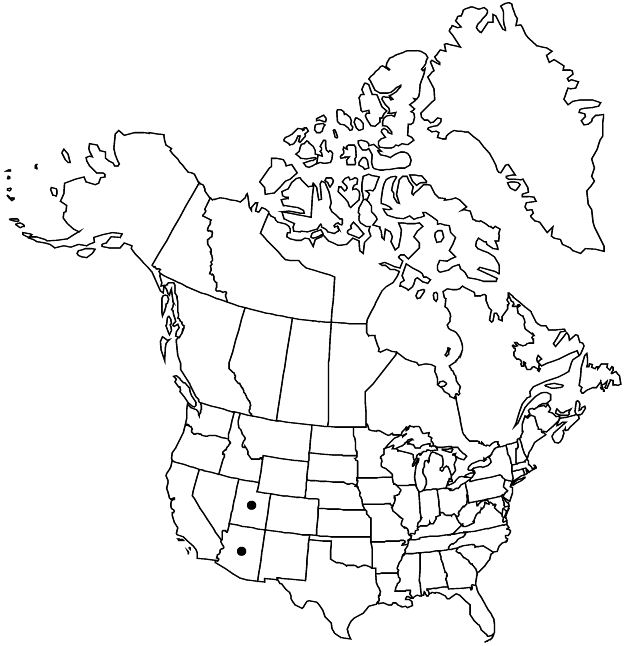Difference between revisions of "Sphaeralcea gierischii"
Novon 12: 161, fig. 1. 2002.
imported>Volume Importer |
imported>Volume Importer |
||
| Line 55: | Line 55: | ||
|publication year=2002 | |publication year=2002 | ||
|special status=Conservation concern;Endemic | |special status=Conservation concern;Endemic | ||
| − | |source xml=https:// | + | |source xml=https://bitbucket.org/aafc-mbb/fna-data-curation/src/2e0870ddd59836b60bcf96646a41e87ea5a5943a/coarse_grained_fna_xml/V6/V6_667.xml |
|subfamily=Malvaceae subfam. Malvoideae | |subfamily=Malvaceae subfam. Malvoideae | ||
|genus=Sphaeralcea | |genus=Sphaeralcea | ||
Latest revision as of 23:22, 5 November 2020
Plants perennial. Stems ascending, usually dark red-purple, 4–10 dm, glabrous or stellate-canescent. Leaf blades green, gray, or gray-green, ovate to cordate-ovate, 3- or 5-lobed, main lobe unlobed in 3-lobed leaves, cleft in 5-lobed leaves, lobes spatulate, 1.2–4 cm, not rugose, base truncate to cordate, margins entire, surfaces stellate-pubescent. Inflorescences paniculate, open, 2–few-flowered per node, tip not leafy; involucellar bractlets green. Flowers: sepals 5–13 mm; petals red-orange, 15–20(–25) mm; anthers purple or yellow. Schizocarps hemispheric; mericarps 10–15, 4.5–5.5 × 3 mm, chartaceous, nonreticulate dehiscent part 40–50% of height, tip acutish, indehiscent part wider than dehiscent part, sides prominently reticulate. Seeds 2 per mericarp, black, pubescent.
Phenology: Flowering Apr–Jun.
Habitat: Gypsum soil
Elevation: 700–1200 m
Discussion
Of conservation concern.
Sphaeralcea gierischii is found in Mohave County, Arizona, and Washington County, Utah. Material of S. gierischii is limited and eventually may be found to be conspecific with S. grossulariifolia.
Selected References
None.
